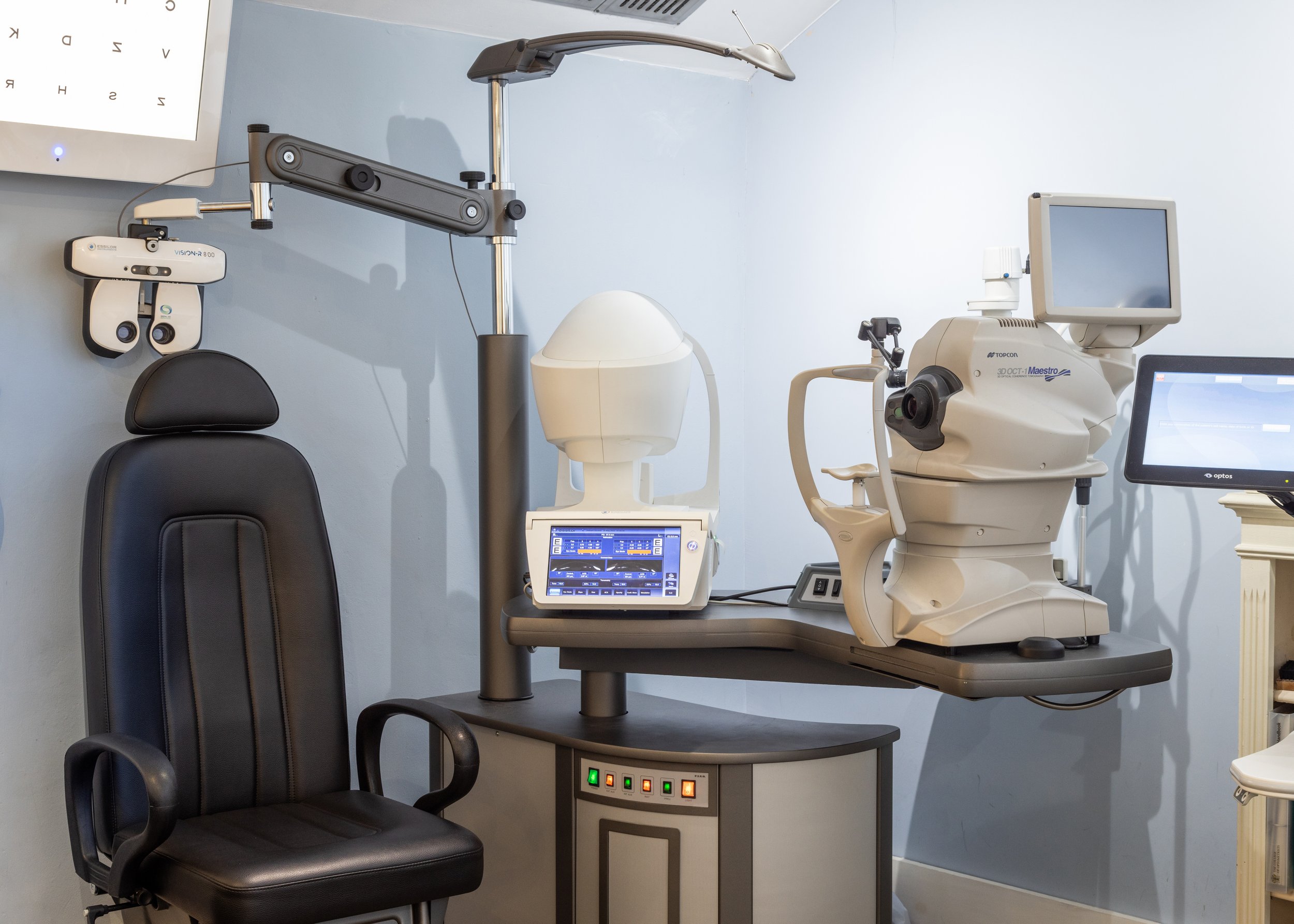
Our Eye Examinations
Regular eye examinations are important for everybody, with or without sight problems. Our tests do not only ensure that you enjoy the highest possible standard of clear and comfortable vision but also allows a check of the health of your eyes, which can sometimes offer an indication of general health issues.
Mr Batham offers private, NHS and children’s eye examinations. Our eye examination can take between 15 to 30 minutes to complete, depending on your needs, any symptoms you present with and if any further testing is required.
Retinal Photography
Retinal Photography has already shown its benefits in diagnosing such conditions as brain tumours and diabetic retinopathy which without the ability to compare images over time would have been impossible to pick up with paper records. As I believe this is fundamental to the eye examination it is included in our private fees but a charge is made to those eligible for an NHS funded eye examination.
Our Additional Consulting Room Equipment
Optical Coherence Tomography (OCT)
Optical Coherence Tomography (OCT) is the next level up on retinal assessment and allows me to image the soft tissues of the eye that are not visible to photography. This is undeniably the best technique to assess Macular degeneration and early Glaucoma. Wet Macular degeneration which can now be treated and especially successfully if caught early can only be seen with OCT scans. The traditional techniques of visual field plotting and Intra Ocular Pressure (Air Puff Test) have been shown to find Glaucoma at a much later stage than the OCT can see the condition. An additional charge is made for this assessment.
OPTOS Daytona Laser Scanning Ophthalmoscope
We are one of the few practices in the Bristol area that have an OPTOS Daytona Laser Scanning Ophthalmoscope. This fascinating piece of equipment allows me to image the retina into the far periphery, 200 degrees of view compared to the 40 offered by photography. This is especially useful when investigating Flashes and Floaters which usually requires the pupils to be dilated with drops which can take 40 minutes to work and last for up to 5 hours after instillation. I can do this job without drops, so taking a matter of minutes to perform and allowing you to drive home afterwards. I have already found several detached retinae with this equipment and given reassurance to many other patients. There is a charge for assessment using this highly advanced piece of equipment.
WAM 800-Wave Form Aberometer
I have recently added the WAM 800-Wave Form Aberometer to my portfolio of equipment which is incorporated into all examinations. This multifunctional piece of technology integrates with my new RX800 Eye Examination Refractor Head and Chart to give crisp and easy responses to the Sight Test. It also gives assessments for Cataract and Corneal shape and thickness, allowing the Tonometer (air puff) test to adjust the results to compensate for differing anatomy.
Plus-Optix Paediatric Vision Screening
For babies and very young children I have the Plus-Optix Paediatric Vision Screening Device which, from a distance of one metre and in just one second or less, a measurement of both eyes is taken which gives me information, even on very small babies, without needing to use drops
NHS Funded Eye Examinations
For those who are eligible for an NHS funded Eye Examination the test is largely the same as our private eye examination. As an NHS Contracted practice, we can claim towards the cost of your sight test from the NHS and therefore there will be no charge made to you. However, the NHS does not fund advanced imaging technology such as retinal photography, OCT and laser tomography. Therefore, a charge will be made for these investigative services.
For NHS patients we require you to fill this form out. We have the electronic version of this on a tablet that patients sign. If you have any questions about this please ask a member of staff.
Dry Eye Syndrome
Dry eye syndrome occurs when the eyes do not produce enough tears, or if the tears that are produced evaporate too quickly. The syndrome can be caused by the oil (Meibomian) glands becoming blocked or abnormal which then leads to the eyes drying out, becoming inflamed and feeling irritated.
If the main problem is a blockage of the oil-secreting glands, then the condition is called Blepharitis, Meibomian Gland Dysfunction or Lid Margin Disease.
The symptoms of dry eye syndrome can be mild or severe.
They include:
dry or sore eyes
blurred vision
the feeling of something in your eye
burning
watering
Dry or Watery Eye Syndrome is a condition that requires care and analysis. Mr Batham can advise you on the best course of action.




